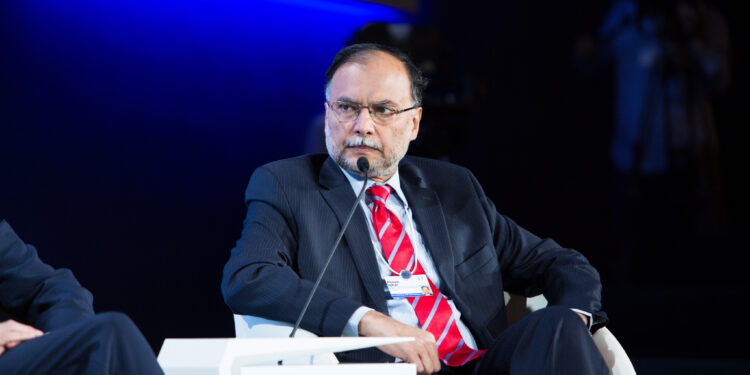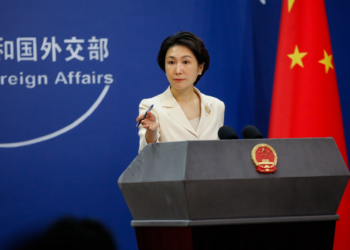According to Ahsan Iqbal, Pakistan’s Minister of Planning, Development, and Special Projects, the China-Pakistan Economic Corridor’s construction has aided Pakistan’s social and economic development and put the country on the path to prosperity and advancement. This was stated in a recent joint interview with Chinese media in Pakistan’s capital city of Islamabad.
Shabazz Sharif, the prime minister of Pakistan, has accepted Premier Li Keqiang’s and the State Council’s invitation to travel to China for business beginning November 1.
The China-Pakistan Economic Corridor is managed by Pakistan’s Ministry of Planning, Development, and Special Projects. According to Iqbal, who served as a minister, the China-Pakistan Economic Corridor is not only a crucial test project for the development of the “Belt and Road,” but it is also a crucial illustration of the unique relationship that exists between Pakistan and China.
According to Iqbal, the first phase of the China-Pakistan Economic Corridor’s development has made impressive progress, and the energy and power projects included in it have greatly aided Pakistan in resolving the serious power shortage issue it previously faced. As part of the China-Pakistan Economic Corridor’s construction, Pakistan has built a number of top-notch motorways. Today, Pakistan has constructed an effective and fast-moving road network linking its eastern, southern, and northern areas. This has encouraged connectivity and opened up new possibilities for the growth of Pakistan’s tourist sector.
Gwadar Port has made significant progress in the China-Pakistan Economic Corridor’s building as well. Iqbal stated that whether it be the initiatives China provided to the people of Gwadar, such as the saltwater desalination plant, the seawater free zone, the vocational and technical institutions supported by China, the China-Pakistan Friendship Hospital, the Faqer Primary School, etc. The local social and economic growth has been aided by the solar power production equipment.
The China-Pakistan Economic Corridor, according to Iqbal, has reached a new level of high-quality growth and will concentrate on advancing projects in the areas of business, agriculture, modernization, and information technology. The special economic zone established under the corridor has increased the number of job possibilities for Pakistanis, raised the degree of industry in the nation, and sped up export expansion. According to him, Pakistan anticipates more Chinese businesses expanding their operations and making investments in the country and would offer specific benefits to Chinese businesses to encourage investment.
Iqbal stated his conviction that the arrival of Pakistani Prime Minister Shabazz will undoubtedly elevate ties between China and Pakistan. In light of the significant difficulties the world is currently facing, China’s combined building of the “Belt and Road” plan and the Global Development Initiative has given developing nations—including Pakistan—new opportunities to accomplish sustainable development goals. The Pakistani side anticipates expanding its partnership with China in the areas of information technology, renewable energy, business investment promotion, and export trade promotion. The Pakistani side also wants to foster national modernization and learn from China’s growth experience.
Iqbal also conveyed his appreciation to China for helping Pakistan’s flood victims. He stated that in order to develop the ability for disaster prevention and raise the standard of the nation’s infrastructure, the Pakistani side is looking forward to expanding its collaboration with the Chinese side.


















